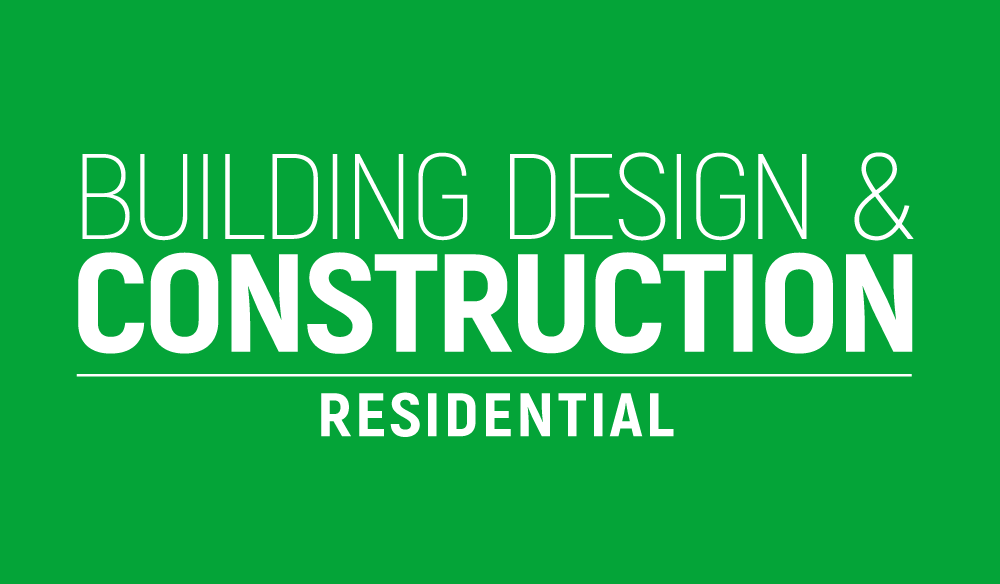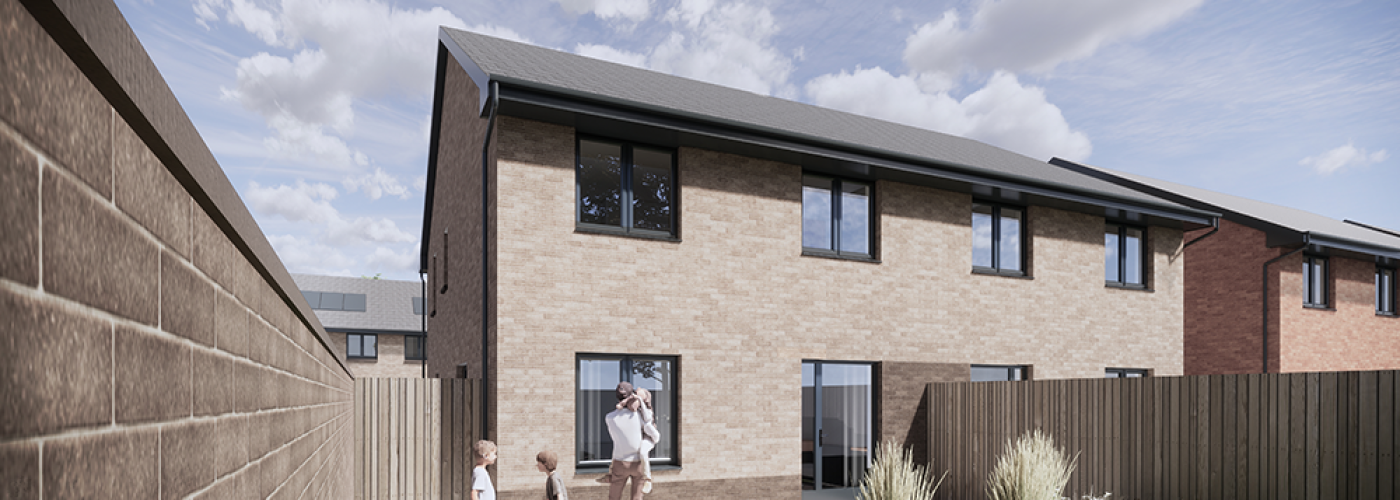Advanced Industrialised Methods for the Construction of Homes (AIMCH), the three-year project to support the sector to tackle the UK housing crisis, has arrived at an answer to the UK’s chronic housing shortage. Following 18 months of intense collaboration and research, AIMCH partners Stewart Milne Group (SMG) and L&Q have developed housing blueprints for developers, housing associations and SMEs to bring affordable homes to market quickly and cost effectively.
The affordable housing pattern books, featuring 24 designs, have been created to facilitate the construction of cottage flats, bungalows, semi-detached and terraced houses, all of which offer the flexibility to meet planners needs, and to fit in with local character. Designs from the pattern book can also be pieced together to accommodate a range of elevations and streetscapes.
A central element of the type approved housing collections is their use of closed panel MMC timber technology, optimised to meet 55% PMV (Premanufactured Value), a requirement of Homes England grant funding. Their 0.20 U-Value provides a fit-and-forget, fabric first approach to energy efficient building envelope, set to comply with new Jun 22 Part L building regulations.
Both gas and ASHP heating options are factored into the designs, and the layout and fabric efficiency of the building envelope ensures that homes in the pattern books are heat pump ready as we move towards zero gas developing, making it easy to use the technology now or retrofit in the future.
In creating the pattern books, the developers have leveraged learnings from Design for Manufacture and Assembly (DFMA), Design Standardisation and Product Families (Kit of Parts) and BIM (3D modelling) outputs. AIMCH developers plan to exploit the standard house type pattern books on their own sites, or through strategic partnerships with other developers and clients.
Through Stewart Milne Timber Systems, some of the homes will be available under free of charge license agreement, for other developers to use, as a whole house MMC supply chain solution. This novel approach, means SMEs, smaller HA/developers and new entrants, have immediate access to a range of fully considered, efficient and technically robust affordable homes, for use on their site, reducing development costs and fast-tracking appraisals and planning consents.
Pattern books feature:
L&Q range – 6 designs
● Two and three bedrooms
● Two storey accommodation, suitable for terracing
● All homes 100% compliant with NDSS
● Beyond the AIMCH R&D project, further L&Q typologies are planned.
SMG House Range – 18 designs
● Wide mix of one to four bedroom homes
● Two storey accommodation, suitable for terracing
● Broad range of typologies including bungalows and cottage flats
● Homes offer 85% and 100% NDSS compliance
Stewart Milne Group (SMG) and L&Q are confident that the pattern book route will guarantee fast delivery of high quality homes at reasonable cost and plan to deploy the designs in their own development portfolio from Spring 2022. In the case of Stewart Milne Homes, current affordable housing developments are being remixed or designed from scratch, using the new range of homes. L&Q are similarly rolling out their range on all new sites, as these come through their production pipeline.
Stewart Dalgarno, Director of Innovation and Sustainability at Stewart Milne Group, and AIMCH Project Director said, “Typically, in the affordable homes sector, design and housing procurement are done on an isolated project-by-project basis, which potentially leads to higher costs, inefficiencies and variability in quality. Because of this, AIMCH sees enormous potential for accelerated use of pattern books in the sector.
“Homes England affordable housing funding is already encouraging a more diverse mix of affordable home providers – SMEs and new entrant developers. This group is unlikely to have in-house technical teams to develop house type designs and associated collateral, so being able to reach for pre-configured, pre-approved housing designs, that can be deployed at pace, to accelerate and increase overall housing output is going to be an attractive option.
“Furthermore, through endorsement from regulators, funders, and insurers, AIMCH believes that housing pattern books and standardised products will become commonplace in the affordable housing sector.”
Wayne Hill, Production Strategy Director at L&Q said, “L&Q is proud to be leading the way in the adoption of off site technologies in the affordable housing sector. These developed approaches offer a clear way for housebuilders, housing associations and local authorities to adopt MMC methods, and the efficiencies which come with them, to build homes for those who need them the most. We have an ambitious roadmap which is seeing us roll out MMC across our development programme, and look forward to utilising the great learning of this project in our portfolio this year.”
AIMCH see pattern books, together with the use of standardised product families, DFMA and BIM, developed in an earlier part of their research, as key ingredients in transitioning residential construction towards, industrialisation and off-site manufacturing, transforming how homes are delivered.





